Value for Money
Value for Money (VFM) Statement
settle's 30-year Business Plan and objectives are reviewed annually and VFM is integral to achieving these.
In this section we set out our approach to value for money across our operations, demonstrating our commitment to provide good quality, efficient services as well as our compliance with the Regulator of Social Housing (RSH) Value for Money Standard.
Our approach to Value for Money
In recent years, our approach to value for money has been about how we effectively plan, manage and operate our business so that we maximise our resources in pursuing our purpose. It enables us to understand our core business costs whilst making sure any future activity or undertaking by settle is considered with a focus on value for money outcomes. Our risk assurance framework enables us to manage and mitigate the risks we take as effectively as possible.
We also embed value for money through key strands of activity across the business:
Good governance – We operate a clear scheme of delegation within our financial regulations and operating rules and have a clear approach for reporting financial decisions to our Boards. The Audit and Risk Committee is responsible for in-depth examination of risk management and reviewing internal and external audit findings.
Financial management – Robust financial management arrangements are embedded within our operating rules and financial regulations. These include approved levels of financial delegation, our budget setting and variation processes and procurement limits. Annually, capital and revenue budgets are developed by the Executive Team and submitted to Board for approval. Budgets are set in line with the Group’s 30-year business plan to ensure we deliver our objectives whilst meeting loan covenants and our treasury and investment management ‘golden rules’.
These golden rules set out that key investment decisions, for example, new developments and capital projects, must be supported by a financial appraisal which details the return expected on investment. All budgets are monitored by the budget holder with variations from profiled expenditure scrutinised as well as any changes to projected out-turn. Quarterly reforecasts of expected performance against the budget position are undertaken and reported to Board.
Effective procurement – Our financial regulations outline the framework for achieving value for money when procuring goods and services, for example, tendering, e-procurement and assessment criteria including social value and environmental sustainability gains. A cross-organisational Procurement Panel is in place to ensure that procurement is undertaken appropriately. As at 31 March 2024 90% of settle’s total procurement spend is contracted spend which shows a strong procurement discipline.
Asset management – We operate an asset performance model to effectively manage our asset base at settle, which takes into account a series of cost and performance data around our stock. Reviews are undertaken to address under-performing stock. Options would include reinvestment, change of tenure type or disposal. Any decisions are discussed at colleague-led groups before they are formally approved at Executive Team or Board depending on the scale of the proposal.
Resident insight and experience to drive good outcomes – We believe that a value for money residentexperience is one that commands high trust with minimal effort to access the services we provide. We are committed to listening to residents' views and designing and improving services as a result. Ways we gather feedback from residents include through our Big Door Knock and Voice of the Resident Panel, along with surveys including gathering data against the new Tenant Satisfaction Measures. Our internal culture of continuous improvement ensures colleagues understand that the views of residents are integral to how we drive improvements in outcomes.
Performance management – Our Annual Delivery Plan outlines what actions are in place during the year to help meet our strategic objectives. Performance against objectives is monitored through key performance indicators presented to each Board meeting quarterly. The key performance indicators are a balance of cost and outcome measures so that there is a comprehensive oversight of the economy, efficiency and effectiveness of services.
Risk management – A Risk Assurance Framework is in place that helps Board and senior management to identify the key risks facing the budget and the mitigations in place to reduce the scale of risk. A fundamental aspect of good risk management is ensuring that we have a strong internal control environment in place. Key controls include ensuring clear policies and procedures are in place, effective training is provided for colleagues to undertake their role and timely and accurate reporting is presented to senior leaders and Board. We gain assurance through a series of management and independent arrangements. The Audit and Risk Committee undertake an annual programme of risk ‘deep dives’ based on risk and internal control assurance. Independent assurance is gained through a risk based Internal Audit programme as well as the use of specialist third parties where appropriate.
We conduct a regular review of resident complaints and perform quarterly root cause analysis that is shared with our service leads. In understanding why things go wrong we can address the issues, minimise the risk of repeat and improve the services we provide.
Developing our people – We have continued to develop our people and reward strategy to ensure settle is able to attract, recruit, develop and retain the right mix of talent, experience and competence to deliver our purpose and the experience we want residents to have of settle.
To deliver value for money is an integral part of our corporate ethos and values. To do this we need to ensure that everybody at settle has the understanding and opportunity to make this a reality through our learning and development framework.
This approach has underpinned a cycle of service provision reviews to ascertain whether the appropriate balance of effectiveness, economy and efficiency is being achieved.
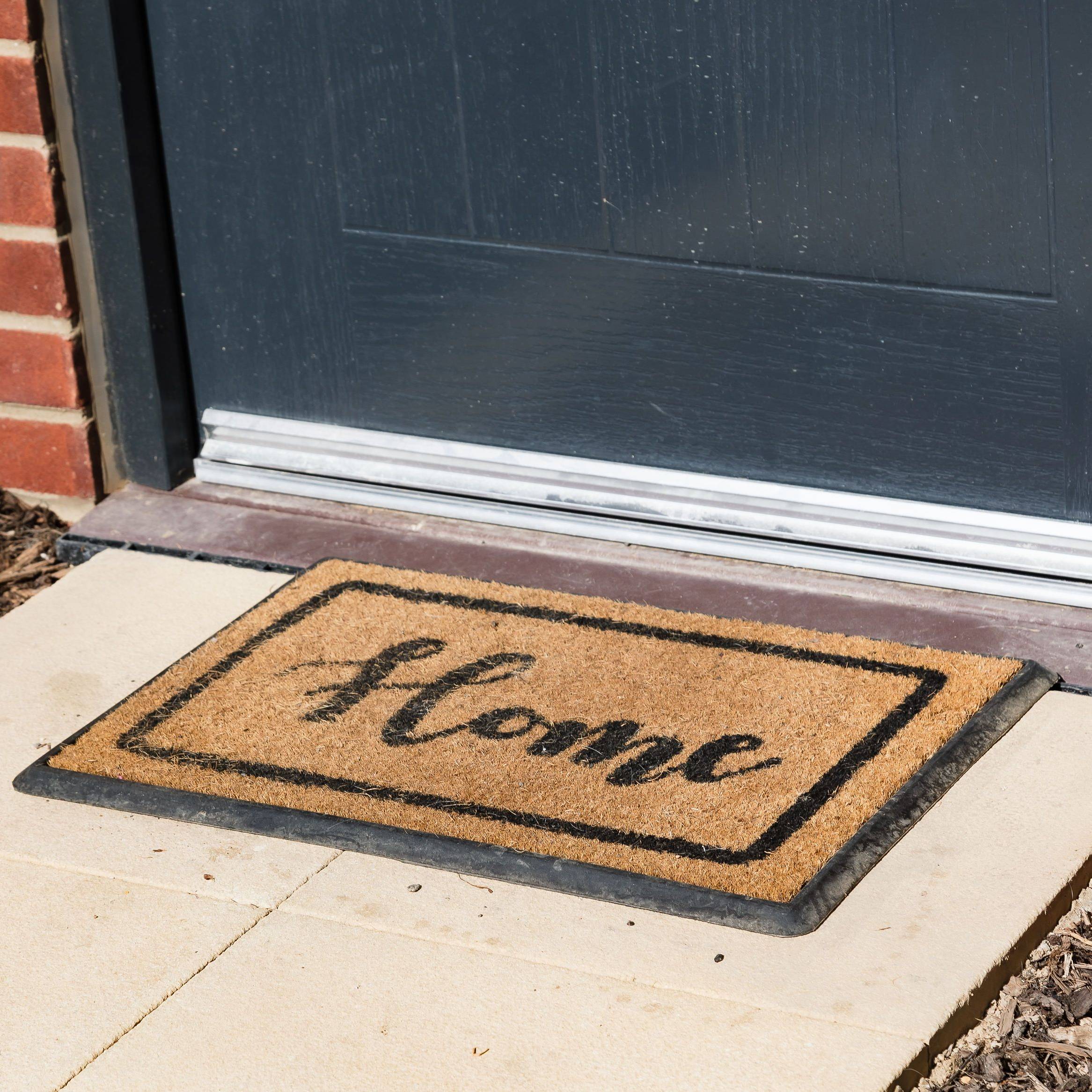
Measuring Performance
We monitor our own performance and trends in VFM, as well as using financial benchmarking data in assessing our financial performance in comparison with other housing associations.
During 2023/24, we have measured our performance through a suite of performance indicators and targets approved by the Board. The indicators have been selected as they are considered to be the lead indicators of delivery against our four strategic objectives and performance against them is reported to and considered by the Board at each meeting.
A summary of the 2023/24 performance is in the tables below:
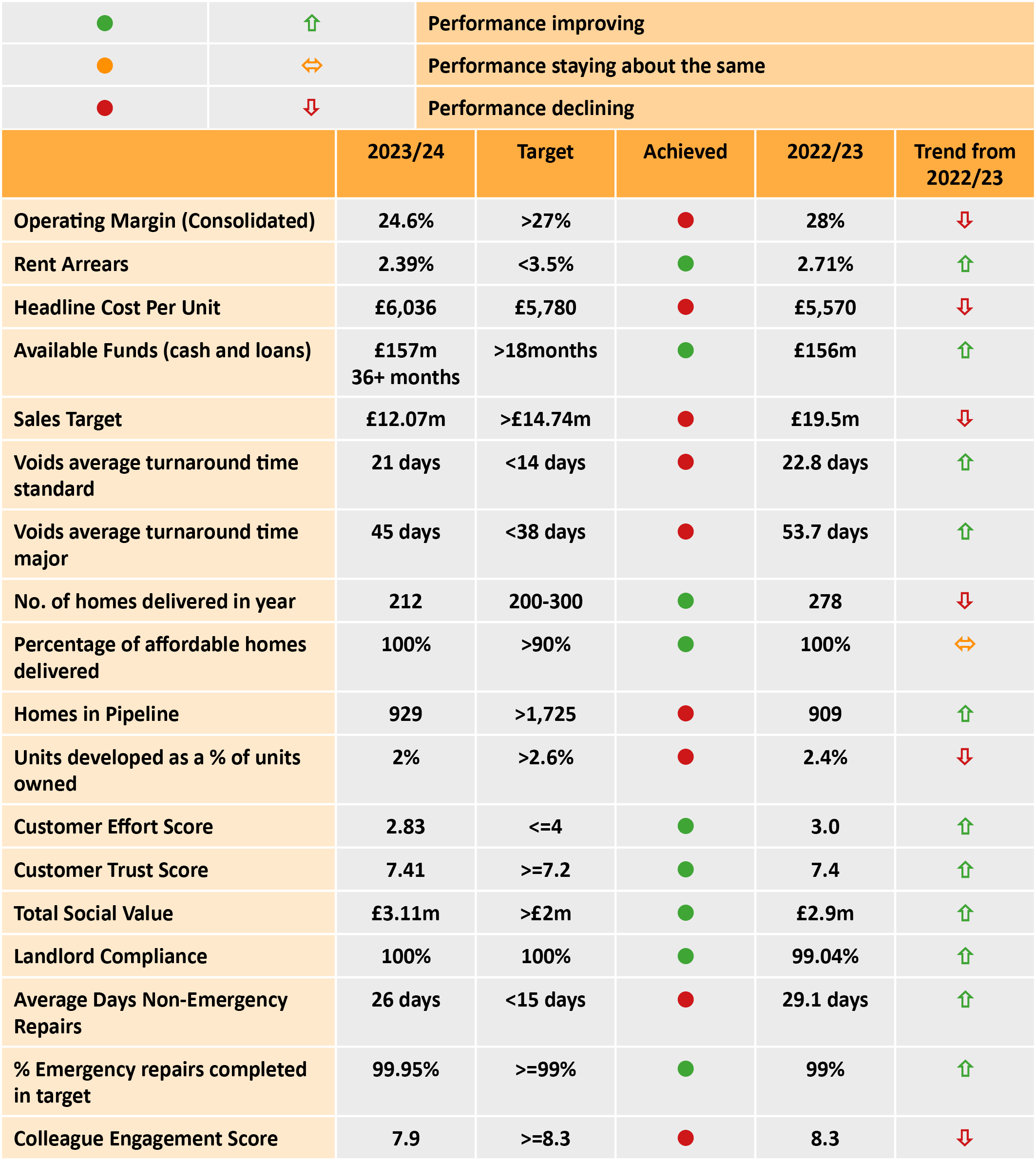
More detail on each measure is shown in the following tables.
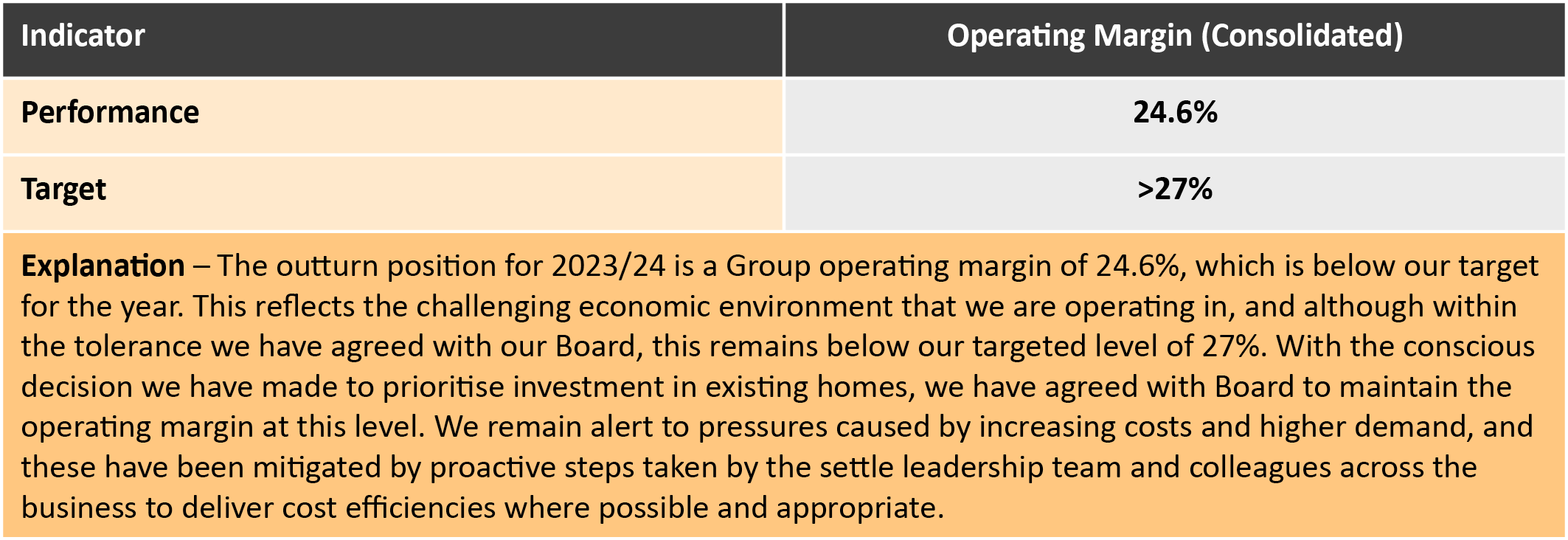

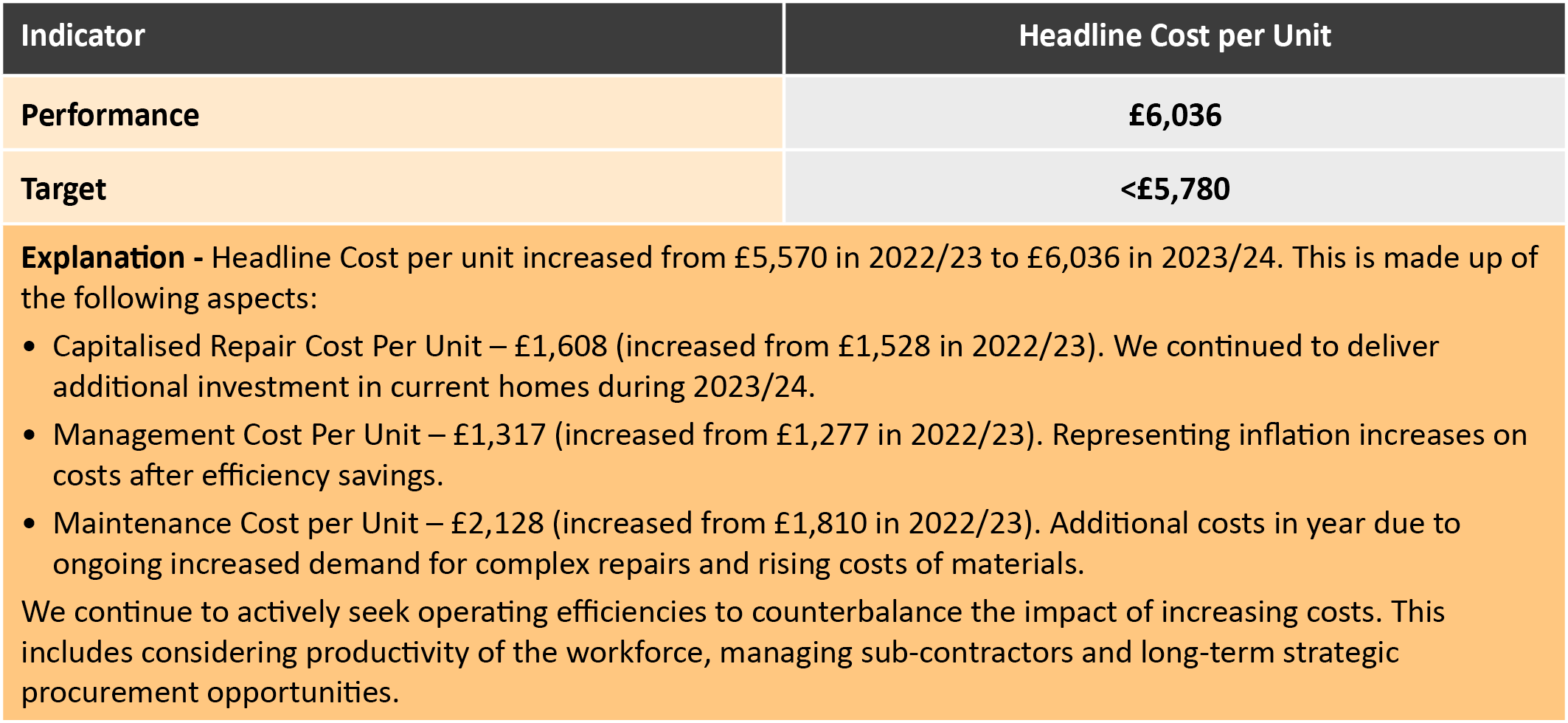
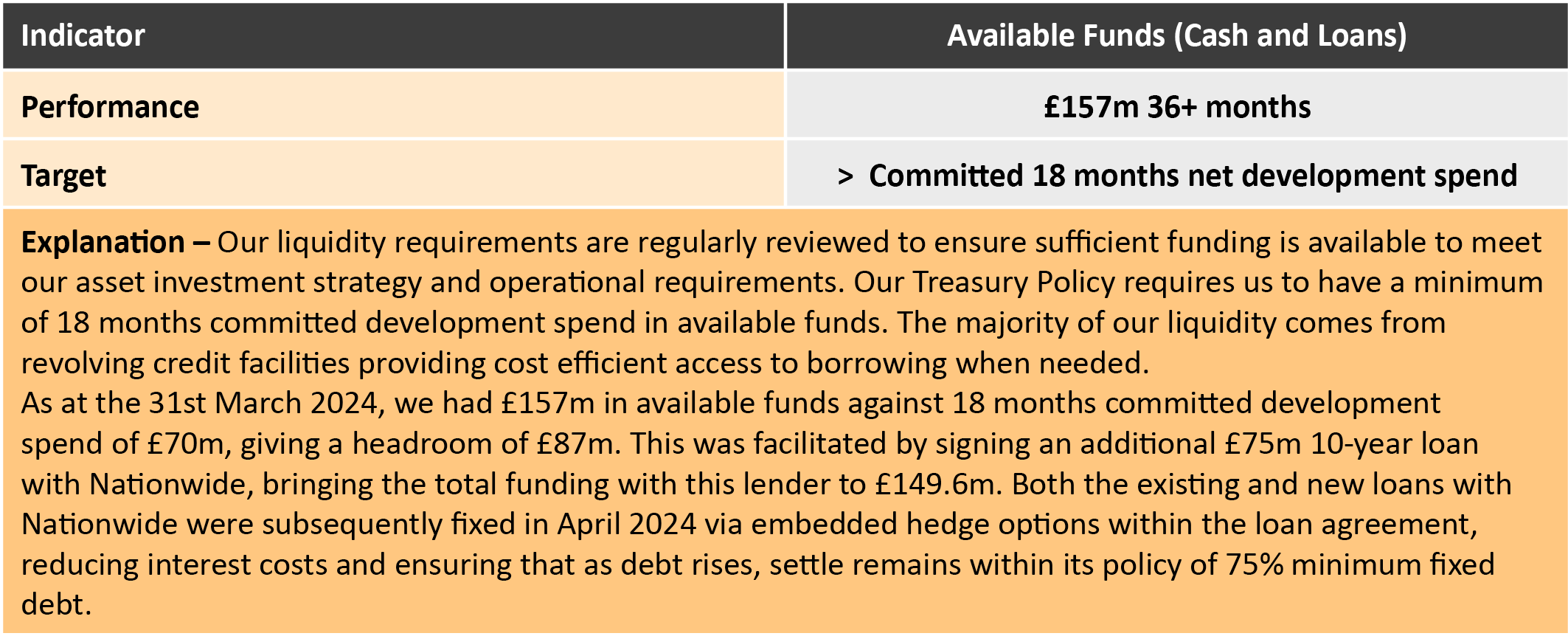

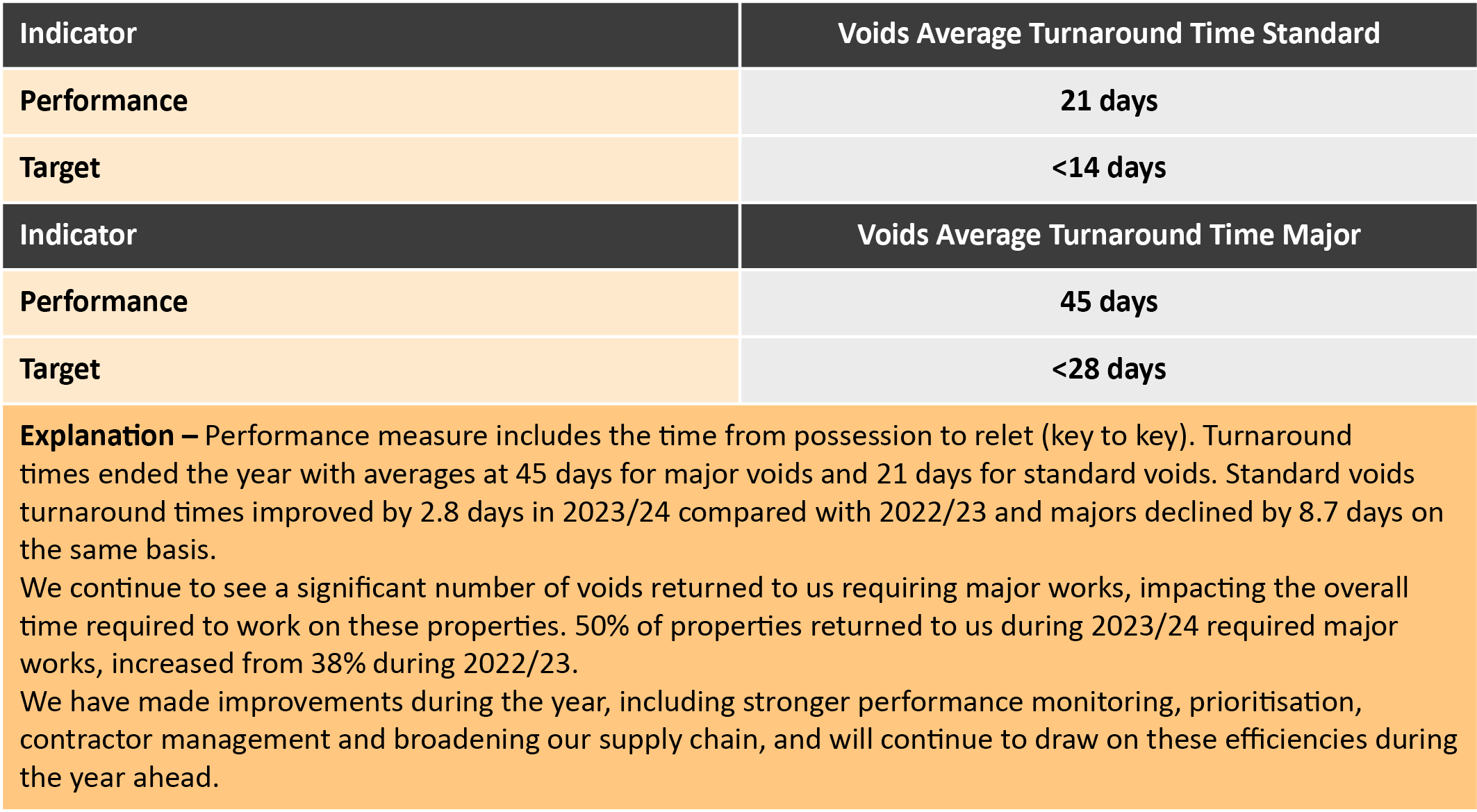






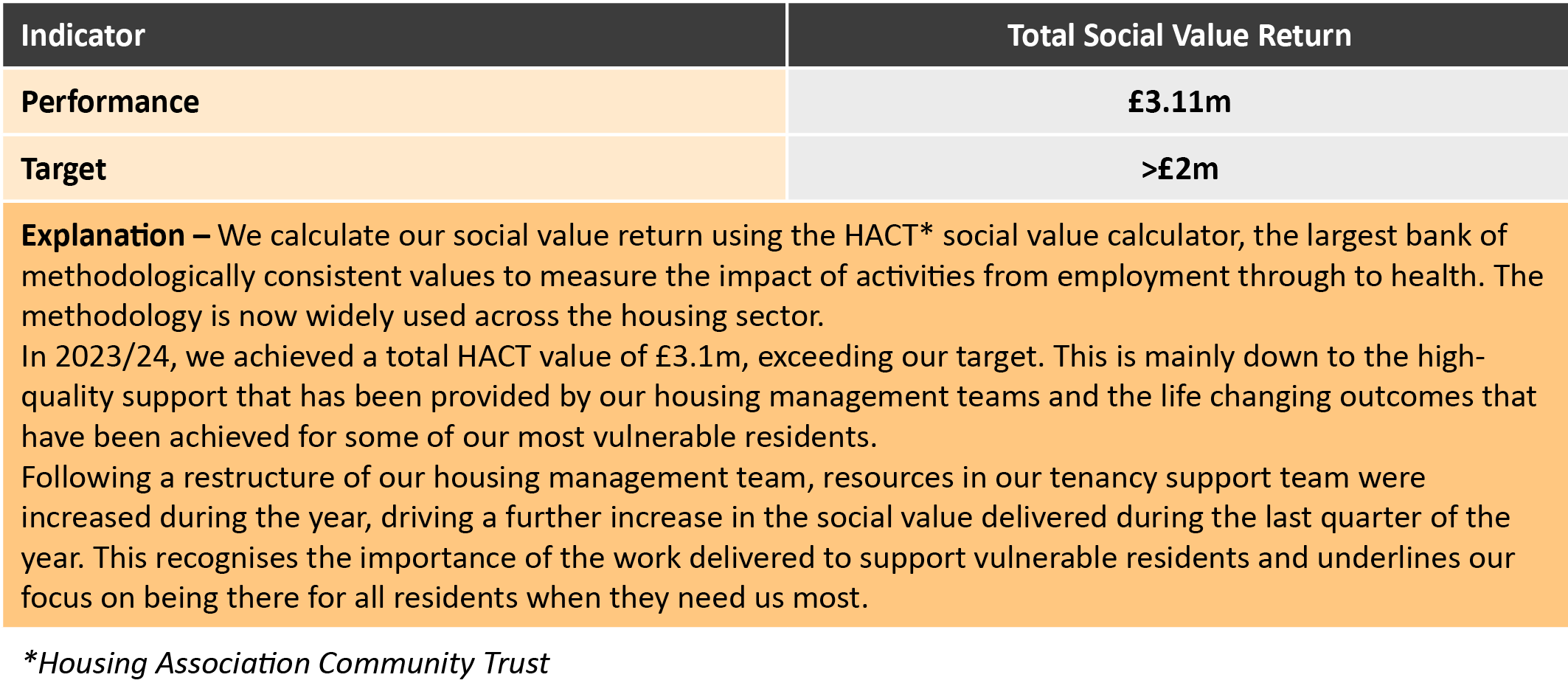

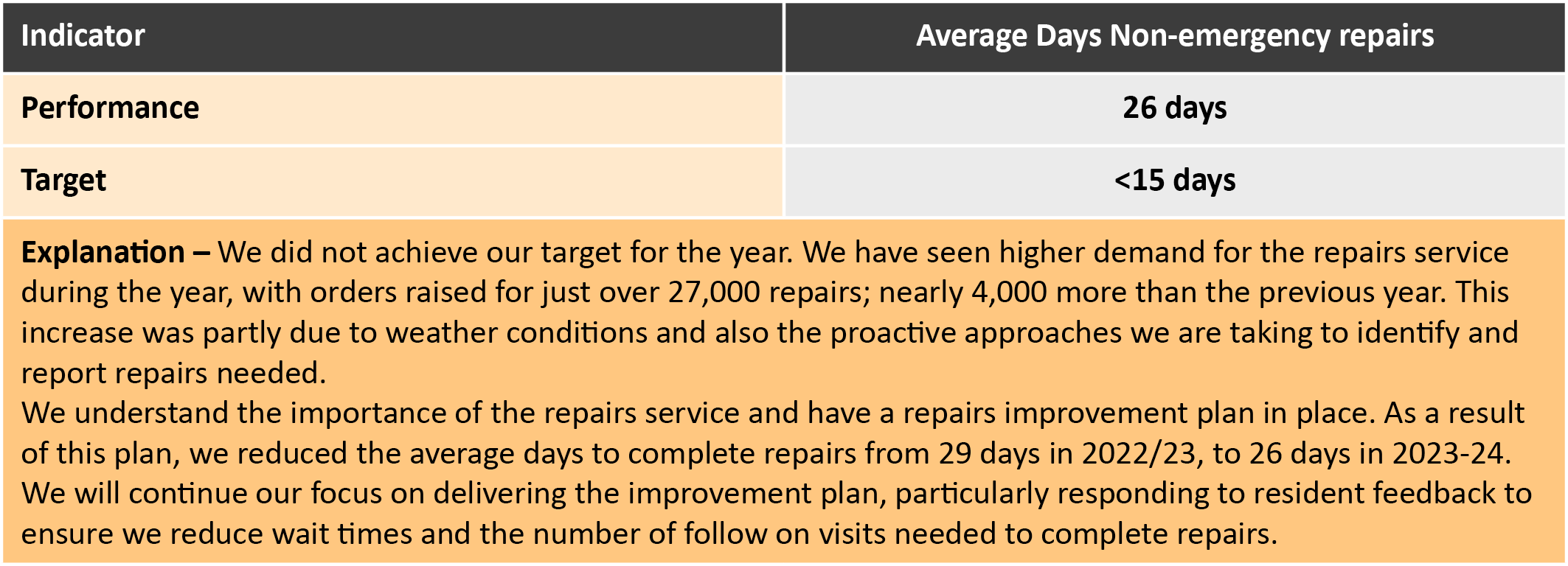

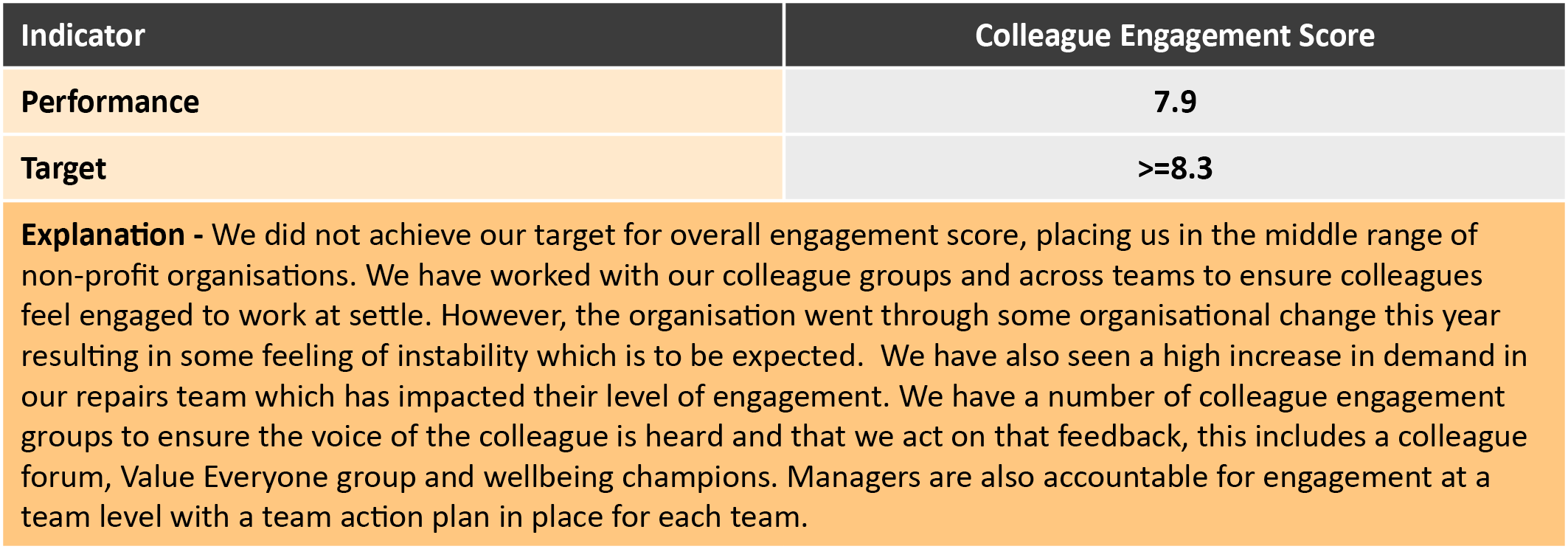
2023/24 RSH Sector Scorecard VFM metrics
We also monitor our performance against the Regulator of Social Housing (RSH) VFM scorecard metrics. The metrics for settle are provided in the table below, which compares both in terms of our year-on-year performance and financial performance against the RSH 2022/23 annual Global Accounts for all housing providers and locality average, and 2022/23 locality benchmarking:
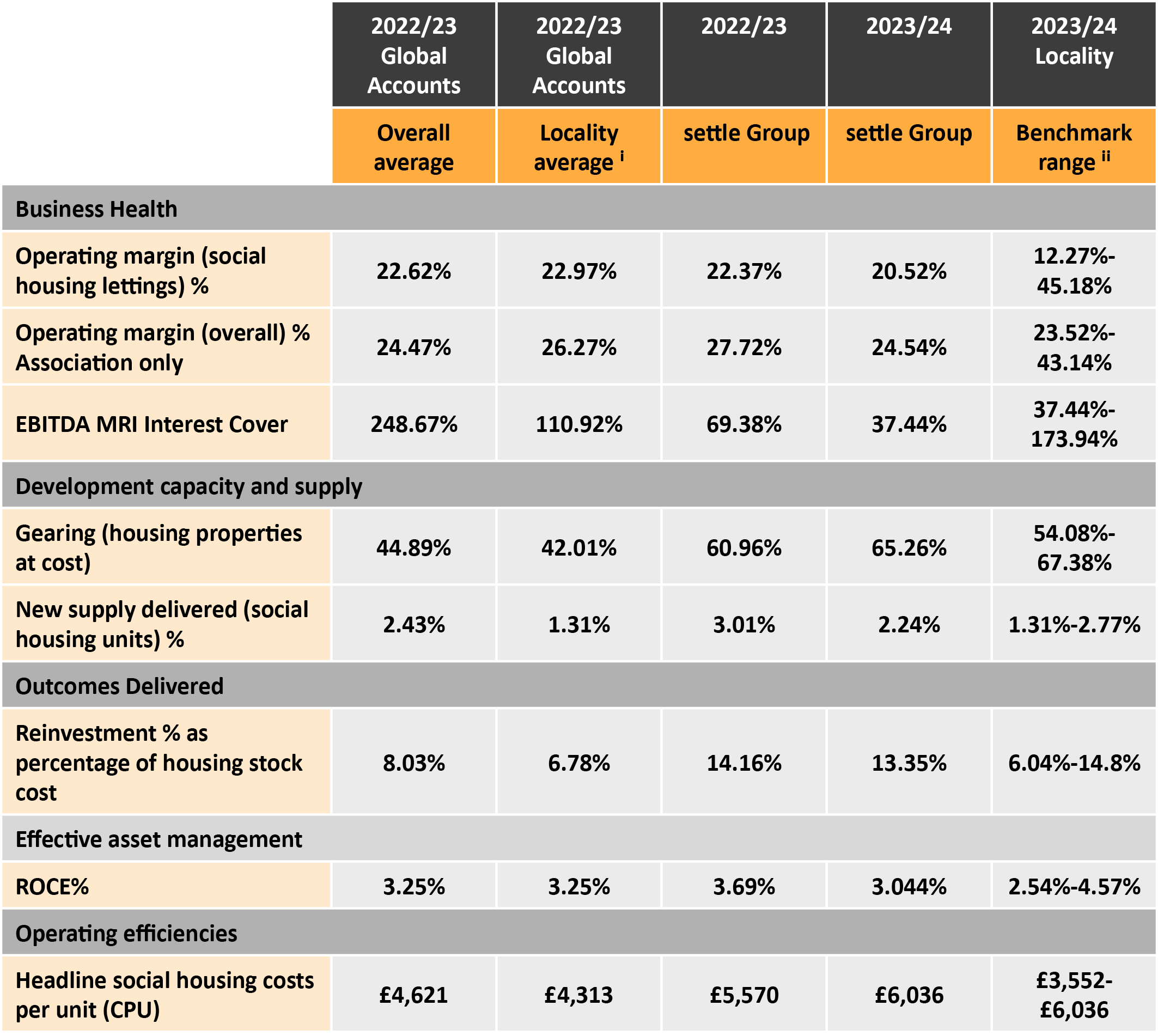
I This is the Global Accounts benchmark average for similar housing associations in our locality (defined as LSVT housing associations operating primarily in Hertfordshire and/or Bedfordshire). Housing associations used are settle Group, B3 Living, BPHA, Hightown Housing Association, Thrive Homes and Watford Community Action Trust.
ii This is the benchmark average for similar housing associations in our locality (defined as LSVT Housing Associations operating primarily in Hertfordshire and/or Bedfordshire). Housing associations used are settle Group, B3 Living, Thrive Homes and BPHA based on 2022/23 Global Accounts.
Key VFM Performance Indicators
Business health
Our operating margin overall has remained broadly in line with the previous year’s performance. Our Social Housing Lettings Margin has reduced with additional expenditure during the year on maintenance of properties.
Our long-term financial plan shows that settle continues to operate with reasonable headroom above covenant levels.
Development capacity and supply
Our gearing has increased slightly but remains well below covenant levels. This puts us in a good position from which to deliver our development strategy.
Outcomes delivered
Investment in our homes increased in 2023/24. Investment will consciously continue to ensure our homes are safe and environmentally friendly.
Effective asset management
ROCE remains strong, emphasising the robust economic fundamentals of our operations.
Operating efficiencies
Our cost per unit increased during 2023/24 and this was predominantly driven by increased maintenance and capital cost per unit. We continue to look for efficiencies while maintaining performance. It is likely that capital maintenance cost per unit will rise during 2024/25 as we consciously continue to invest in assets, and this will see an overall increase in our cost per unit figures.
Next steps
Our approach to Value for Money has remained the same throughout 2023/24. This is best demonstrated by the diagram below:
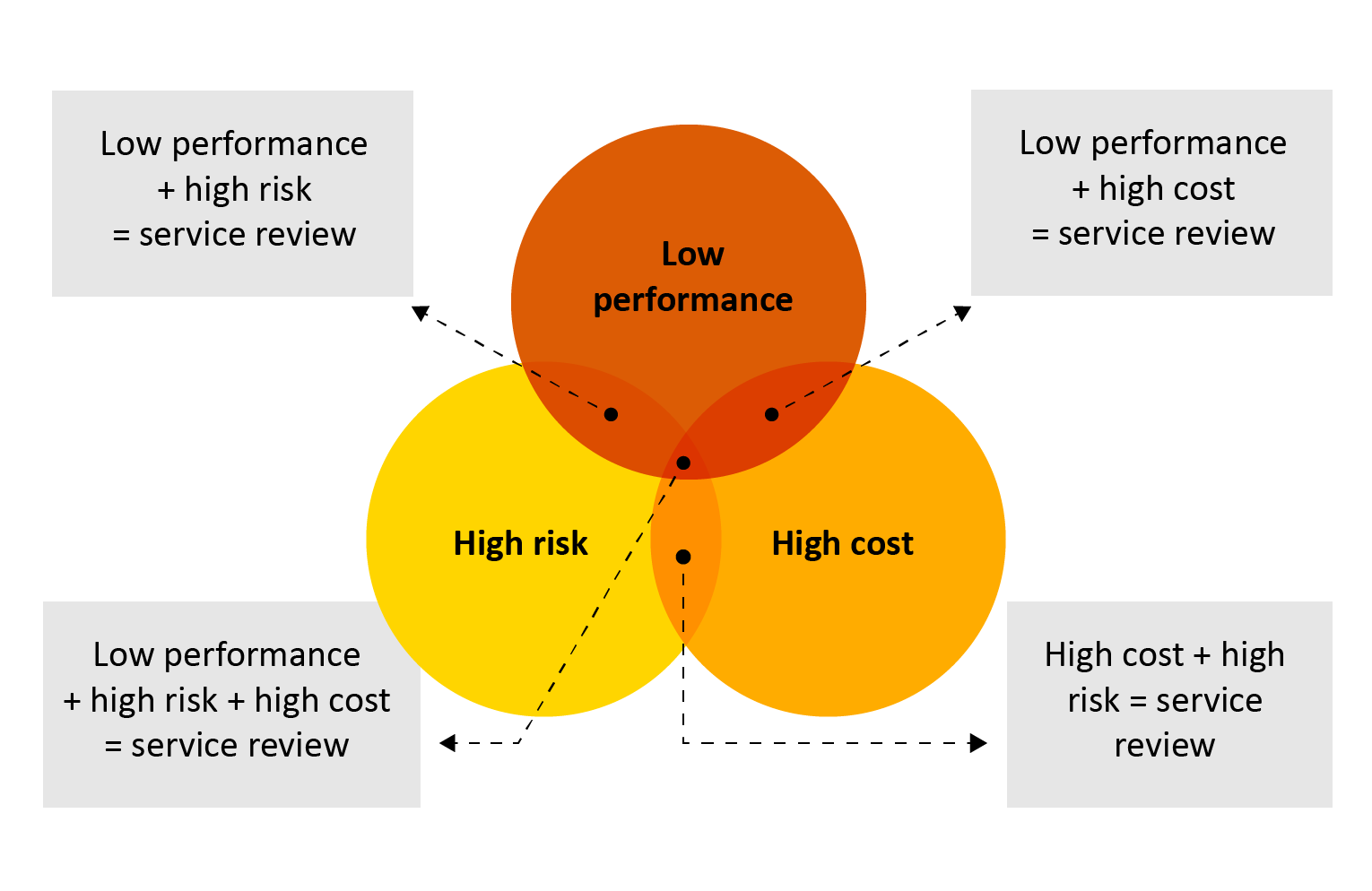
In October 2022 our Internal Auditors undertook a review into our Value for Money approach and process and provided the Board with substantial assurance.
The Board regularly receives cost per unit effectiveness measures within the management accounts report at each Board meeting.
Through this cost analysis, coupled with our performance data and risk appetite statement, we will identify areas of service provision that we will review to ascertain how improvements to value for money can be made – this will continue to include identifying whether settle should be providing the service.